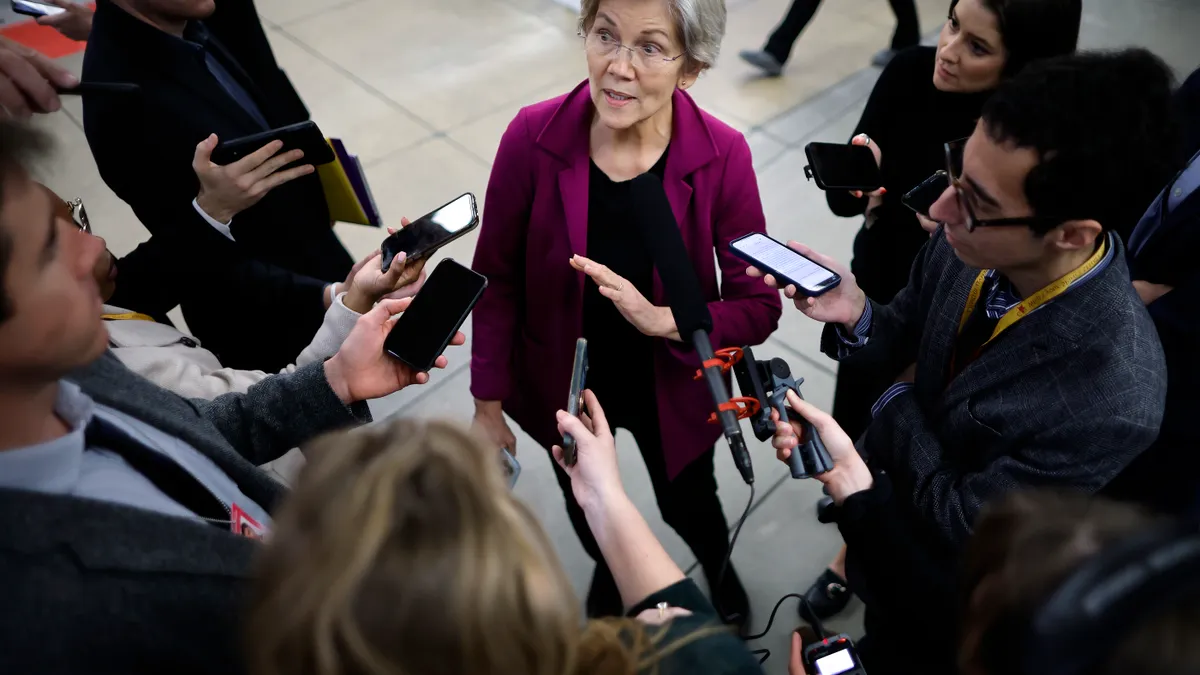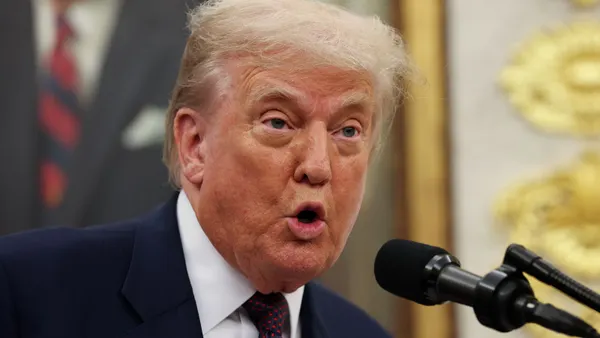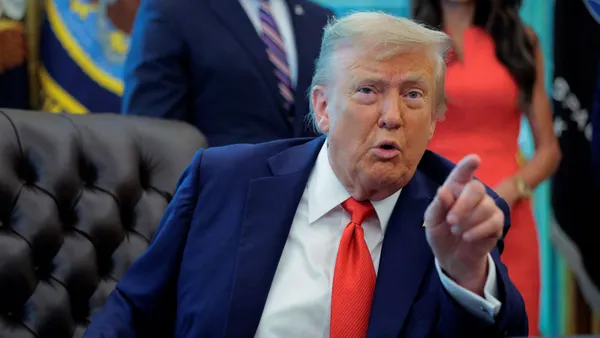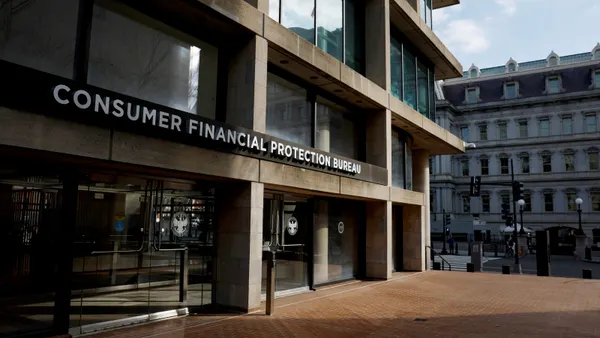Regulators’ decision to allow JPMorgan Chase to purchase First Republic Bank this month increased concentration in the U.S. banking industry, putting the financial system at risk, Sen. Elizabeth Warren, D-MA, said during a Senate Banking Committee hearing Thursday.
Warren, who has long been a staunch opponent of large bank mergers, said she was “troubled” by regulators’ approval of JPMorgan’s takeover of the collapsed regional lender, in a sale orchestrated by the Federal Deposit Insurance Corp. on May 1.
San Francisco-based First Republic’s collapse marked the second-largest bank failure in U.S. history, and is the latest in a string of failures that have perpetuated a crisis of confidence in the U.S. banking system.
JPMorgan, which reportedly outbid PNC, Citizens Bank and Fifth Third, was granted an exception from the Office of the Comptroller of the Currency to assume a majority of the bank’s assets, deposits and certain liabilities.
Regulations had precluded the nation’s largest bank from acquiring another U.S. depository institution because it already holds more than 10% of the nation’s deposits.
Warren’s criticism of the deal follows a letter she sent to the OCC Acting Comptroller Michael Hsu and FDIC Chair Martin Gruenberg on Wednesday, requesting the agency heads detail their reasoning behind the decision.
“The net result of these machinations is that, without a complete regulatory review, and at a cost of $13 billion to the Federal Deposit Insurance Fund, the nation’s biggest bank — already too big to fail — got a bargain deal on a failing bank that made it even bigger,” she wrote. “This is a troubling outcome, leaving me with numerous questions.”
During Thursday’s hearing, Warren blasted Hsu’s role in greenlighting the deal, saying he failed to factor in JPMorgan’s global systemically important bank score, an assessment methodology that estimates the impact a lender would have on the economy if it were to fail.
“Your job, by law, is to determine risk to the system from making big banks even bigger. And you have a clear metric for doing that — GSIBs. So how do you explain approving a sale to a banking giant that increases the risk to the banking system by somewhere between nearly 800% and 1400% more than selling to other bidders?” Warren asked. “Did you just ignore the fact that a failure at JPMorgan would blow a hole in our banking system and let them grow by $200 billion?"
Hsu defended the OCC’s actions, saying the regulator had to consider other factors to stem contagion in the banking sector.
“For every merger application, we follow the law, we follow our guidelines, we follow our policies and procedures," Hsu said. “Had we followed a strict GSIB score methodology to the exclusion of everything else, I fear that there would have been greater financial instability that weekend.”
An approach that focused solely on the GSIB factor “would not have been wise,” Hsu said.
“The single biggest threat to the U.S. banking system is concentration. We're all pushing harder for merger guidelines, so that we don't get more concentration in the banking system,” Warren said before her time expired. "According to your own metric, you chose the one that gives us more concentration in the system. I am very troubled by that decision.”













